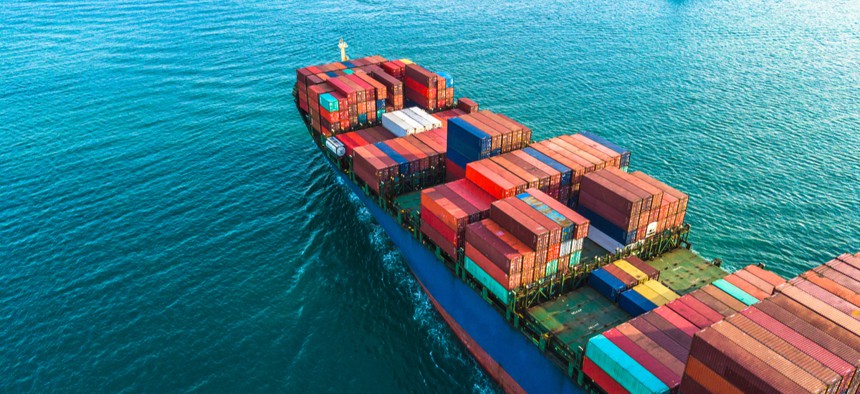Commerce to Ban U.S. Business Involvement with Forced Labor, Detention Camps in China

Avigator Fortuner/Shutterstock.com
A new rule will deny most export licenses to 11 companies implicated in human rights violations of Uyghurs and other Muslim minorities in China.
The Commerce Department will publish a new rule banning business with 11 China-based companies implicated in human rights violations against ethnic minorities in the Xinjiang Uyghur autonomous region.
“Beijing actively promotes the reprehensible practice of forced labor and abusive DNA collection and analysis schemes to repress its citizens,” Commerce Secretary Wilbur Ross said in a press release. “This action will ensure that our goods and technologies are not used in the Chinese Communist Party’s despicable offensive against defenseless Muslim minority populations.”
The Commerce Department will add Changji Esquel Textile Co. Ltd.; Hefei Bitland Information Technology Co. Ltd.; Hefei Meiling Co. Ltd.; Hetian Haolin Hair Accessories Co. Ltd.; Hetian Taida Apparel Co., Ltd.; KTK Group; Nanjing Synergy Textiles Co. Ltd.; Nanchang O-Film Tech; and Tanyuan Technology Co. Ltd., Xinjiang Silk Road BGI and Beijing Liuhe BGI to its list of restricted businesses, dubbed the Entity List.
“All eleven entities have been implicated in human rights violations and abuses in the implementation of China’s campaign of repression, mass arbitrary detention, forced labor and high-technology surveillance against Uyghurs, Kazakhs, and other members of Muslim minority groups in the Xinjiang Uyghur Autonomous Region,” reads the rule, set to publish in the Federal Register Wednesday.
Groups such as the International Consortium for Investigative Journalists have reported on the Chinese government’s detention of an estimated 1 million Uyghurs using artificial intelligence and surveillance technology to make widespread arrests. The Chinese government says the camps offer vocational training and are meant to counter terrorism, but journalists report accounts of “brainwashing” and even forced sterilization in the region, as part of what is being referred to as a cultural genocide.
The next phase of the program, according to a recent Australian Strategic Policy Institute report, is forcing Uyghurs and other minorities to work in factories across the country that supply famous brands such as Nike, Apple and Dell, and 80 others.
Decisions to add or remove entities from the Entity List are made unanimously by the End-user Review Committee, which is composed of representatives of the departments of Commerce, State, Defense, Energy and, when appropriate, Treasury.
The ERC “determined that Xinjiang Silk Road BGI and Beijing Liuhe BGI are enabling activities contrary to the foreign policy interests of the United States through conducting genetic analyses used to further the repression of Muslim minority groups in the XUAR,” Commerce’s Bureau of Industry and Security wrote.
The final rule did include possible exceptions, to be made on a case-by-case basis, for items relevant to addressing the global pandemic, such as those “necessary to detect, identify and treat infectious disease” and added similar modifications for 37 other entities on the list.
But outside of that, “BIS has adopted a license review policy of presumption of denial for all other items subject to the [Export Administration Regulation],” the notice reads, including aliases for the entities. “For all eleven entities, the license requirements apply to any transaction in which items are to be exported, reexported, or transferred (in country) to any of the entities."






